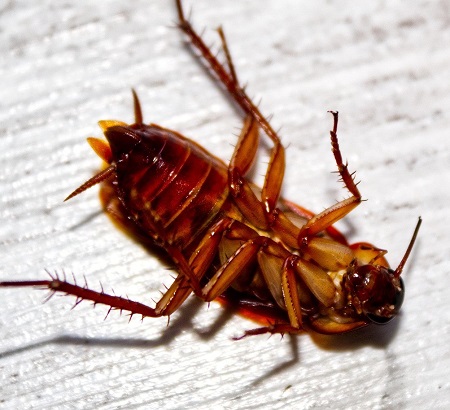How Pests Affect Your Health — and How to Keep Your Home Safe for the Family
 Pests are more than just an annoyance—they can pose serious threats to your family’s health and comfort. From cockroaches scuttling across the kitchen floor to mosquitoes buzzing in the yard, these unwelcome visitors can carry harmful bacteria, trigger allergies, and even transmit dangerous diseases. Infestations often go unnoticed until damage is already done. Protecting your home means more than keeping it clean—it means actively preventing pests.
Pests are more than just an annoyance—they can pose serious threats to your family’s health and comfort. From cockroaches scuttling across the kitchen floor to mosquitoes buzzing in the yard, these unwelcome visitors can carry harmful bacteria, trigger allergies, and even transmit dangerous diseases. Infestations often go unnoticed until damage is already done. Protecting your home means more than keeping it clean—it means actively preventing pests.
In this article, we’ll explore how pests impact your health and what steps you can take to keep your home safe and pest-free year-round.
Getting Rid of Pests: First Line of Defense
The best way to protect your home and health is to act early and consistently to get rid of pests before they become a serious problem. Prevention is key. Seal cracks and holes around windows, doors, and foundations to block entry points.
Keep your home clean: wipe surfaces, sweep floors, and store food in airtight containers. Take out the trash regularly and drain standing water to prevent mosquito breeding. If you notice signs of pests—droppings, chewed wires, or bite marks—use traps, bait, or safe sprays. For bigger issues, call a professional. Many services offer eco-friendly and pet-safe treatments so you can eliminate pests without putting your family at risk.
Health Risks Associated with Common Pests
Pests may seem minor, but their health impacts can be serious. Rodents spread diseases like Hantavirus and Salmonella. Cockroaches trigger asthma and allergies, especially in children. Mosquitoes carry West Nile and Zika viruses. Bed bugs don’t transmit disease but cause skin irritation and sleep loss. Ticks and fleas, often brought in by pets, spread Lyme disease and other infections. These risks make pest prevention essential for a healthy home.
How to Maintain a Pest-Free Home Year-Round
Pest control is a year-round task. In warmer months, trim bushes, clean gutters, and remove standing water. In winter, seal off gaps where rodents may enter for warmth.
Inside, store dry goods securely, vacuum regularly, and check basements and attics for signs of pests. Even your garage can attract insects and rodents if it’s cluttered. Regular inspections—either DIY or professional—help catch problems early and prevent infestations from growing.
Creating a Family-Safe Environment
Removing pests is only part of the job—it’s also important to do it safely. Many commercial products contain chemicals that can harm kids and pets. Instead, choose non-toxic options like essential oil sprays or traps that don’t use poison.
If you use professional services, ask about child- and pet-safe treatments. Keep treated areas off-limits until it’s safe. Teach kids good habits like not leaving food out or alerting adults if they spot a bug. After an infestation, deep-clean your home to remove allergens and improve air quality.
Conclusion
Pests can harm more than your property—they affect your family’s health and well-being. Taking action to deal with a pest control emergency and prevent future problems means you’re building a safer, healthier home. Whether with DIY efforts or professional help, staying proactive is the best way to keep your family comfortable and pest-free all year long.